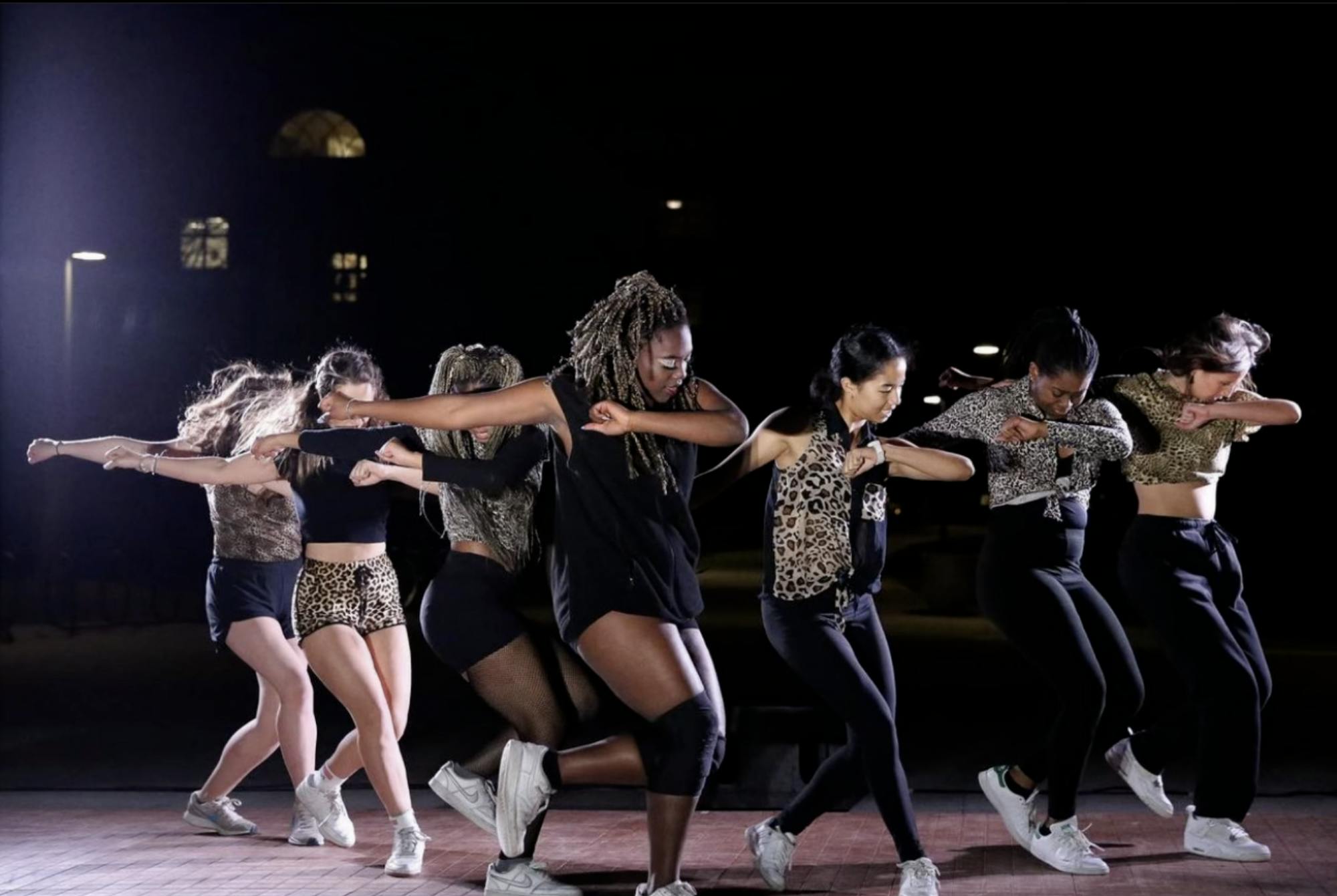Though known for Green Key and a return to outdoor activities, spring term offers a wide range of arts-related programming and features performances from various student dance troupes, including senior shows by groups such as Razz and Ujima.
Raaz, which was founded in 2011, prides itself as “Dartmouth’s premier South Asian fusion dance team,” which “draws from a diverse range of dance styles, including classical, modern, bhangra, hip-hop, contemporary and Bollywood,” according to its website. Raaz dancer Eiha Patnaik ’25 said she is eager to share the new classical dance styles that Raaz has been practicing, such as Odissi.
“In the past, the South Asian dance groups have mostly performed the classical dance, Bharatanatyam, but I will be one of the first Odissi dancers on the team, so now we will be including Odissi,” Patnaik said.
According to Patnaik, Raaz splits into three groups to choreograph their dances individually. After two weeks of working separately, they each teach their dances to the other two groups. The groups swap choreographies with each other and rehearse until everyone is on the same page. Altogether, the groups have to consider other details like their positions and transitions with the new set before their first show.
Ujima similarly tries to incorporate the backgrounds and experiences of its dancers into the choreography. According to its website, Ujima was founded in 1985 as the first dance organization at the College. The group began by mixing modern and African dance, jazz, ballet and hip-hop. Today, the group largely performs hip-hop, but prides itself on the diverse group of dancers it brings together and their ability “to inspire and to transcend boundaries within diverse communities” through dance.
“Several of the seniors are creating choreography and we will be seeing everyone’s different styles come into play,” Giana Amissah ’25, who dances for Ujima, said. “Ujima does a lot of hip-hop, but we also try to incorporate different styles into our dance because our dancers have experience with a variety of backgrounds. Some of them did ballet for a long time, but others did modern and jazz.”
Ujima’s senior show will be at Sigma Nu fraternity. The group is incorporating a range of musical artists into its choreography, performing songs by Travis Scott, Jack Harlow and Young Thug in addition to the Magic Mike soundtrack, Amissah said.
Patnaik and Amissah both expressed excitement for the upcoming performances, citing how they are looking forward to being back on stage and dancing for a large audience. Amissah highlighted the importance of blending performing arts such as dance and music with culture and added that she is looking forward to sharing this artistic outlet not only with other dancers, but also the larger Dartmouth community.
Reflecting on Ujima’s experience throughout the pandemic, Amissah noted some of the limitations that came along with the group’s virtual and socially distanced dance rehearsals. Besides the difficulty of breathing while performing complex choreography and wearing masks, she said an integral part of dancing is the use of facial expressions to tell a story.
“When we were wearing masks, we could honestly have blank faces and it would be fine,” Amissah said. “Now we’ve got to smile.”
Sheba, another dance group at Dartmouth, will be performing in the Beta parking lot. According to their social media, Sheba was founded in 1995 as an urban dance team that embraces all dance styles and musical genres. Elizabeth Ding ’24, who joined Sheba during the fall of her freshman year, noted that virtual experiences during the pandemic played a key role in shaping Sheba’s recent and upcoming in-person performances, and allowed her to view dance in a different light.
“The fact that our virtual shows were pre-recorded allowed us to consider how our choreography and set would look from different angles,” Ding said. “We had a circling camera that made us become more creative. We experimented with different formations and expressions, and I think that translated over to our recent in-person performances.”
Since the pandemic paused in-person programming for two years, student performance groups are now enjoying this gradual transition to normalcy and look forward to bringing people together at dance shows again. With Green Key’s focus on music and the arts, Ding hopes that people will feel inspired to show their support for student performances throughout the remainder of the term.
“I feel like Green Key is an event that brings a lot of students together since this experience is so unique to Dartmouth,” Ding said. “It's just amazing that the College does this every year and gives students a chance to not only have fun but celebrate the performing arts.




